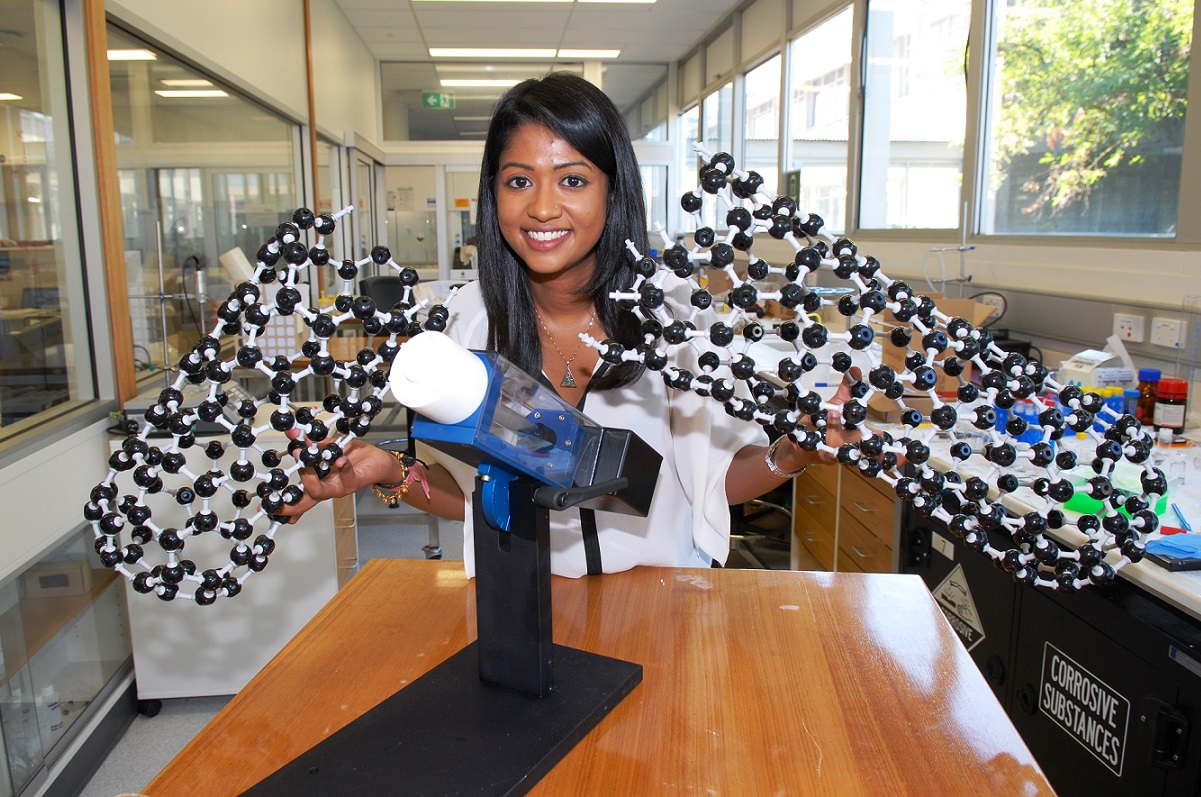
We sat down with Dr Kasturi Vimalanathan from Flinders University’s Institute for NanoScale Science and Technology, and found out about radical advancements in green chemistry that are leading to the creation of new environmentally-friendly materials.
What made you decide to work in the research field?
I want to be able to discover something new every day that could potentially make a difference to society – and that feeling is so rewarding.
What is your current research about?
I’m currently developing sustainable methods to produce carbon nanomaterials, which are among the world’s hardest materials. These are mainly graphene and graphene oxide that will be used in diverse applications, especially for energy storage and for the use in electronic devices. The objective of my research is to reduce costs, complexity in processing methods, processing time, energy usage, and to minimise waste being generated and the use of harsh chemicals and surfactants. This is research that is destined to be used by industry, and most importantly, it will introduce new, improved processing methods without compromising the quality of the products.
How will it benefit the wider community?
Our objective is to develop processes that are environmentally friendly by avoiding the use of toxic chemicals and surfactants. This will not only address environmental and economical sustainability, but also fabricate nanomaterials of high quality at a low cost, without generating waste through processing.
What has been your proudest moment as a researcher?
One evening I turned the television on, and suddenly I was watching myself on ABC’s Catalyst program, talking about my research and its impact to society. It was definitely a moment to remember.
What has been your most challenging moment as a researcher?
Time management is crucial. During the first year of my PhD, I was juggling my research during the week and a 10-month business course over the weekend. It felt extremely stressful and challenging but now I have no regrets. I developed entrepreneurship, innovation, business acumen, leadership and teamwork skills beyond my knowledge of science, and that combination has been an asset to my career growth.
What does a normal day look like for you?
Busy: responding to emails, carrying out experiments in the lab, material characterisation, writing papers and reports, meetings with industry, literature reviews, a bit of administration and then assisting other PhD, Honours and Masters students with their work. It’s relentless.
If there is one piece of advice you could impart on future researchers and university students, what would it be?
Be passionate about what you do and work hard towards achieving your goals.

